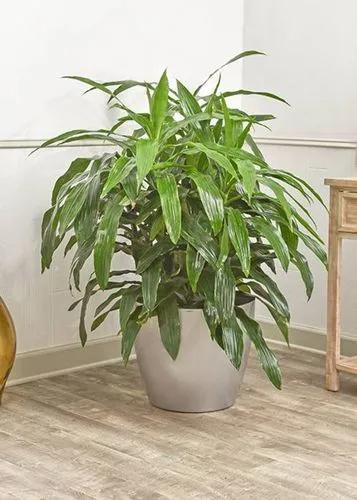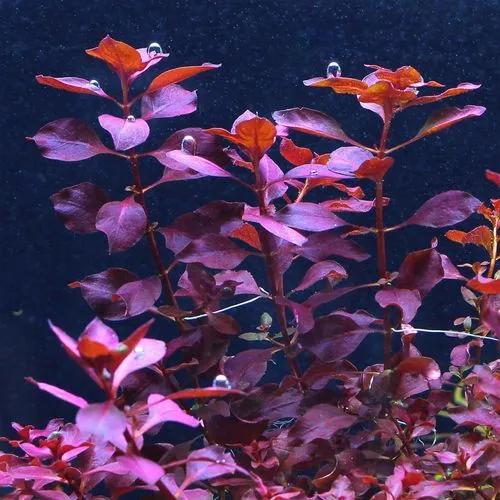It is an evergreen shrub growing to 8–9 m tall, free-standing, or clinging to the trunks of other trees as an epiphyte. The leaves are palmately compound, with 7–9 leaflets, the leaflets 9–20 cm long and 4–10 cm broad (though often smaller in cultivation) with a wedge-shaped base, entire margin, and an obtuse or acute apex, sometimes emarginate. The leaves are leathery in texture, shiny green glabrous on the upper surface and somewhat lighter and matte on the underside. Young plants have smaller leaves and fewer leaflets. Each leaflet has a central rib that divides it into two halves, with between four and six ribs clearly visible up to the third order. The stipules merge with the petiole, the length of which is 12-15 cm. The flowers are produced in a 20 cm panicle of small umbels, each umbel 7–10 mm diameter with 5–10 flowers. The flowering period extends from midsummer to early autumn. The flowers are hermaphroditic, having a colour ranging from yellow to green and a double perianth radial symmetry. They are composed of an entire annular calyx, five almost fully developed sepals, a corolla with five petals 2.5 mm long, with five stamens and five or six carpels that enclose the ovary. The style is not recognizable and the stigma is established. The fruits have an almost spherical oval drupe, with a diameter of about 5 mm. Inside the endocarp contains five seeds. These fruits ripen from late summer to early winter and are initially glandular points of a colour that ranges from orange to red-violet at maturity.
Hawaiian Scheflera Care
Schefflera arboricola 'Gold Capella'



How to Care for the Plant

Water

Water weekly during the growing season and spray the leaves frequently. You can wait until the soil in the pot dries out and then thoroughly soak the soil when you water. Cut back on water during winter. Often, people will overwater a Schefflera plant and doing so will eventually kill it. Yellow and dropped leaves is a sign that you might be watering too much.

Pruning

Your Schefflera may need to be pruned occasionally, especially if it is not getting quite enough light. Cut off what you feel is overgrown or appearing leggy. Schefflera houseplants rebound quickly from pruning and will reward your efforts. The result will eventually be a fuller and lusher plant.

Fertilizer

Feed Schefflera plants twice a week during the growing season with liquid fertilizer, or use two applications of slow-release pellets. They are heavy feeders and will benefit from the extra nutrients.

Sunlight

Schefflera plants are medium light plants, which means that they need bright but indirect light.

Soil

Soil Type: Rich and moderately moist Soil pH: 6.0 to 6.5 (slightly acidic)

Temperature

The best temperature range for Schefflera plants is between 65 – 75 °F. There is some wiggle room with that range, but if your plant is exposed to temperatures below 60 °F its leaves will start to droop. This is a tropical plant so it needs humidity.

Container

Use a pot a couple of inches wider than the existing container.

Additional

Schefflera, commonly known as “Umbrella Plant”: Schefflera can cause vomiting, kidney problems, tremors, and heart and respiratory problems. Scheffleras can also cause oral irritation, such as difficulty swallowing, drooling, and burning of the mouth, lips, and tongue.

Popularity

550 people already have this plant 90 people have added this plant to their wishlists
Discover more plants with the list below
Popular articles






